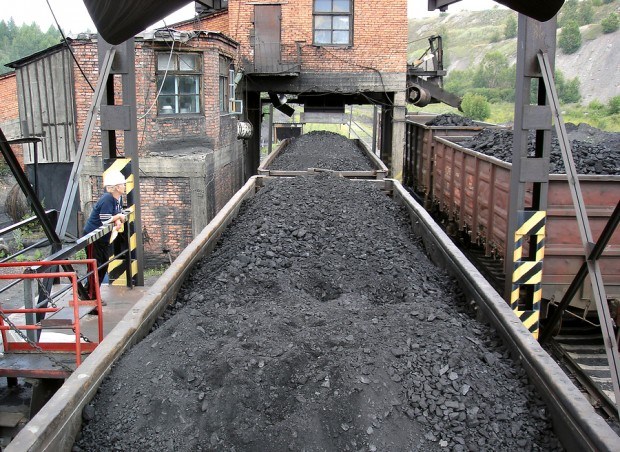A panel of the world’s top climate scientists is preparing to recommend much deeper cuts in fossil-fuel pollution than currently suggested as a pathway to stave off a dangerous increase in global temperatures.
Utilities by 2030 would have to consume just a third of the coal they burn now to hold global warming since the start of the industrial era to 1.5 degrees Celsius (2.7 Fahrenheit), according to a draft of the findings that the group will consider when it meets starting Monday in Incheon, South Korea. The cut is more than twice as steep as the boldest scenario outlined by the International Energy Agency.
The recommendations due for release on Oct. 8 are meant to build on the the three-year-old call to action in the Paris Agreement on climate change. While President Donald Trump has called the issue a hoax and vowed to pull out of the deal, governments across Europe and Asia are working to restrain emissions, and the scientists suggest they must move faster.
“It’s certainly a very ambitious target,” said Tim Buckley, director of energy studies at the Institute for Energy Economics and Financial Analysis. “Will we see it happen by 2030? Probably not — not in any models we’re seeing at the moment. But thanks to technology, the markets are moving away from coal really fast.”
The report by the United Nations’ Intergovernmental Panel on Climate Change draws together hundreds of climate scientists from 195 nations. They’re distilling thousands of academic papers into digestible advice for policymakers. Top officials from the panel will weigh every word of the report starting Monday and deliver a final version next week.
“The panel decided to prepare this report in the context of strengthening the global response to the threat of climate change, sustainable development and efforts to eradicate poverty, thus placing the report firmly among the tools to be used to achieve the sustainable development goals,” Hoesung Lee, IPCC chair, said during his opening address Monday in the South Korean city of Incheon.
The world has warmed almost 1 degree Celsius since the start of the industrial revolution in the early 1800s, and previous reports from the group focused on holding the increase to 2 degrees. Even that level would represent the quickest shift in the climate since the last ice age ended about 10,000 years ago.
This report, commissioned after the Paris deal, stemmed from concerns that island nations would be swamped by rising seas and more violent storms associated with global warming. Scientists link global warming with increasing concentrations of carbon dioxide in the atmosphere, a byproduct of burning fossil fuels, especially coal.
Coal industry officials say that slashing access to their fuel will slow economic growth and leave millions of people trapped in poverty, unable to access affordable electricity.
“It seems to me very unlikely that we will want to use substantially less energy in the future,” said Brian Ricketts, secretary-general of the European Association for Coal and Lignite. “Using energy has allowed us to progress. Using more energy is necessary to create a better world for everyone.”
Carbon dioxide emissions from energy use climbed 1.6 percent in 2017 after three years of little change, according to data from BP Plc. Seventeen of the 18 warmest years during the last 136 have all happened since 2001 with 2016 ranking as the warmest on record, the U.S. space agency NASA has concluded.
Coal currently feeds about 27 percent of the world’s energy demand. That proportion is likely to drop to about 22 percent in 2040 as governments move toward cleaner energy policy, according to the IEA, the Paris-based institution that advises governments on energy.
Under a bolder outlook that assumes quicker action to protect the atmosphere, coal use would fall to 13 percent of the energy market by 2040 — almost double the proportion that the IPCC is weighing as a recommendation. Bloomberg NEF forecasts that global coal generation will peak around 2027 before falling to 11 percent of world electricity by 2050.
Both the IEA and the World Coal Association declined to comment on the draft ahead of publication.
For now, some governments are pressing ahead with meeting commitments under the Paris agreement even though Trump is working to boost the coal industry. China is scaling back its program to expand coal power, and Europe is working to phase it out completely. In Germany, Chancellor Angela Merkel nominated a panel to advise her when the nation can close all its coal plants. The U.K. has vowed to scrap coal by 2025.
Trump’s reluctance to embrace climate science has slowed momentum at the UN talks that produced the Paris Agreement. Envoys at those discussions floundered over the details of a rulebook on how to implement the 2015 accord. They hope to endorse those guidelines at the end of this year at a meeting in Poland, spelling out both how $100 billion in climate-related aid will be delivered and market mechanisms that would spur further emissions cuts.
Delegates at the IPCC meeting go through their findings line-by-line this week in South Korea then sign off on a summary document to be formally released by the gathering on Oct. 8. The envoys are likely to amend parts of the draft before it’s released.





















 Premium Slowdown, Inflation Factors to Lead to Higher P/C Combined Ratio: AM Best
Premium Slowdown, Inflation Factors to Lead to Higher P/C Combined Ratio: AM Best  Telematics and Trust: How Usage-Based Insurance Is Transforming Auto Coverage
Telematics and Trust: How Usage-Based Insurance Is Transforming Auto Coverage  The Future of HR Is AI
The Future of HR Is AI  Teens’ First Year on the Road Most Deadly
Teens’ First Year on the Road Most Deadly 




